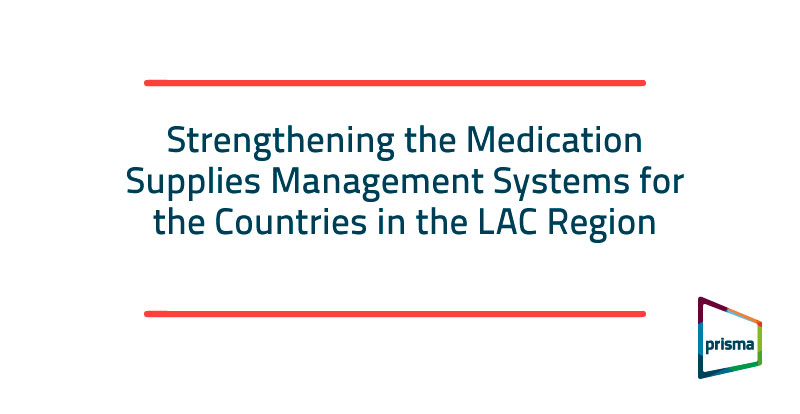
Guaranteeing health medication and supplies has not been accomplished yet in the countries in the Latin American region. The vulnerable population has limited access to these health products, which has an impact on the increase of morbidity and mortality indicators. This is in part because a correct medication logistic management has not been achieved. This limits the availability, access and use of these products in our countries. It is therefore important to develop interventions which aim at strengthening the main components of the logistic management, in the framework of guaranteeing the supplies.
The goals and results are developed in the framework of the strategy for assurance reproductive health supplies (AISSR) which aims at strengthening the distribution of health supplies, with a special focus on SSR and the SSR supplies assurance model.
Goal:
- Strengthen the national capacities for delivering health services, including reproductive health, and the logistic medication and supplies management, with a special focus on improving processes (estimate of needs, purchases, stocking, distribution, use and information system).
Source of funding: United Nations Populations Fund through the Latin American and the Caribbean Regional Office (LACRO) and the country offices of Honduras, El Salvador and Bolivia.
Scope of intervention:
The training and technical assistance activities aimed at the mid-level technical teams of the Ministries of Health of the involved countries, and at their regional levels, networks and prioritized health facilities.
Duration: 2009 –
Achievements:
- El Salvador: Strengthening the capacities of pharmaceutical chemists and technicians from specialized pharmacies and hospitals in terms of logistics management and Good Storage Practices and Rational Use of Medicines. Technical assistance was provided consisting of: a rapid situational diagnosis of the supply of medicines and health supplies in the MINSAL of El Salvador, and the concerted and validated construction of an improvement plan for the same system.
- Ecuador: Technical assistance to the MSP of Ecuador in the design of the Management Model of the national supply center for medicines and medical devices CENAMED. Support in the elaboration of Terms of Reference for the contracting of the storage and distribution service of medicines and medical devices of the MSP.
- Honduras: SALMI computer tool is being used and generating information for FP services and the logistics management of medicines and health supplies in 84 health establishments, 25 Health Networks and 8 Health Regions.
- Bolivia: Strengthening of the CEASS and the Revolving Fund in the capacities for calculating needs, planning and purchasing contraceptives within the framework of the Unified Health System.
PHOTOS


